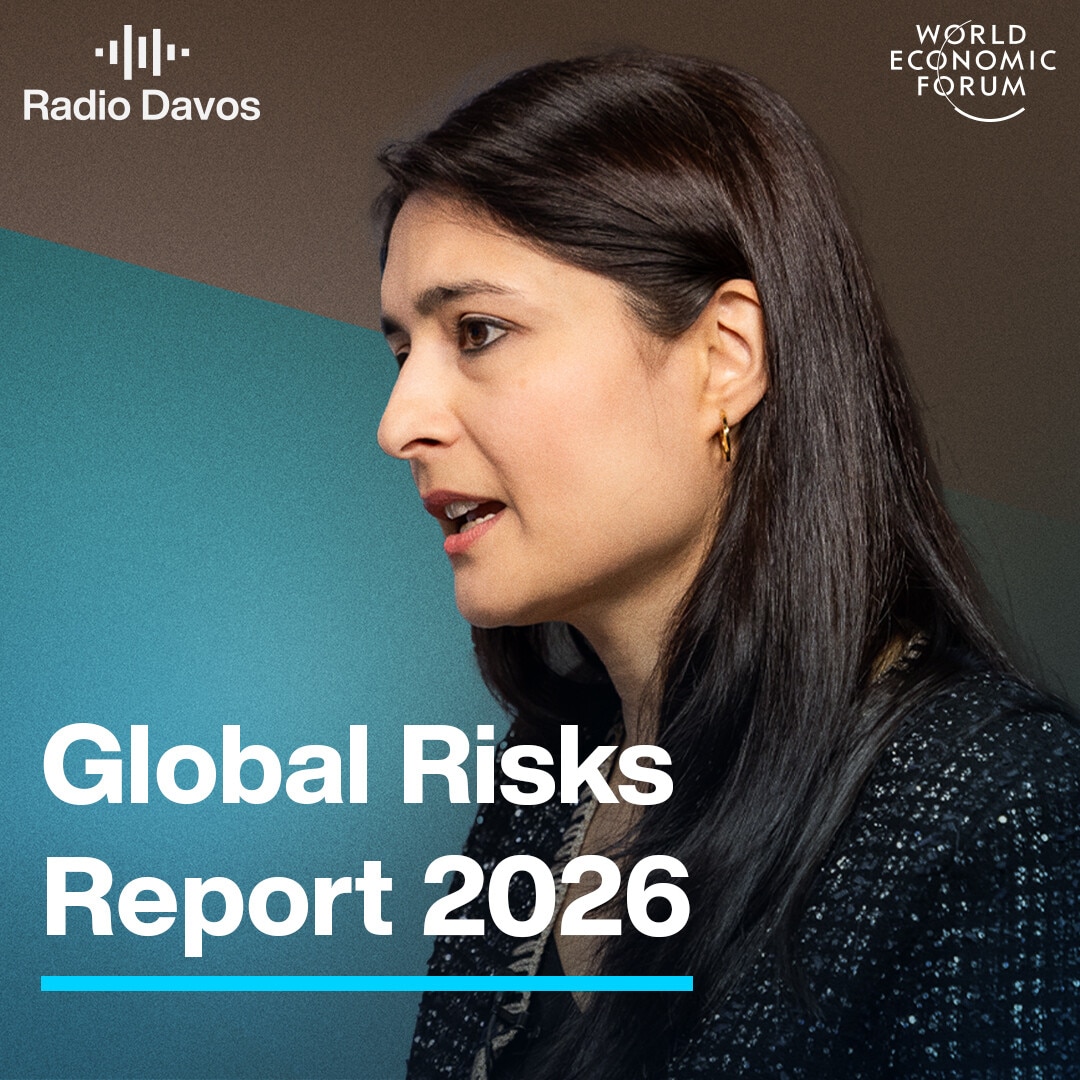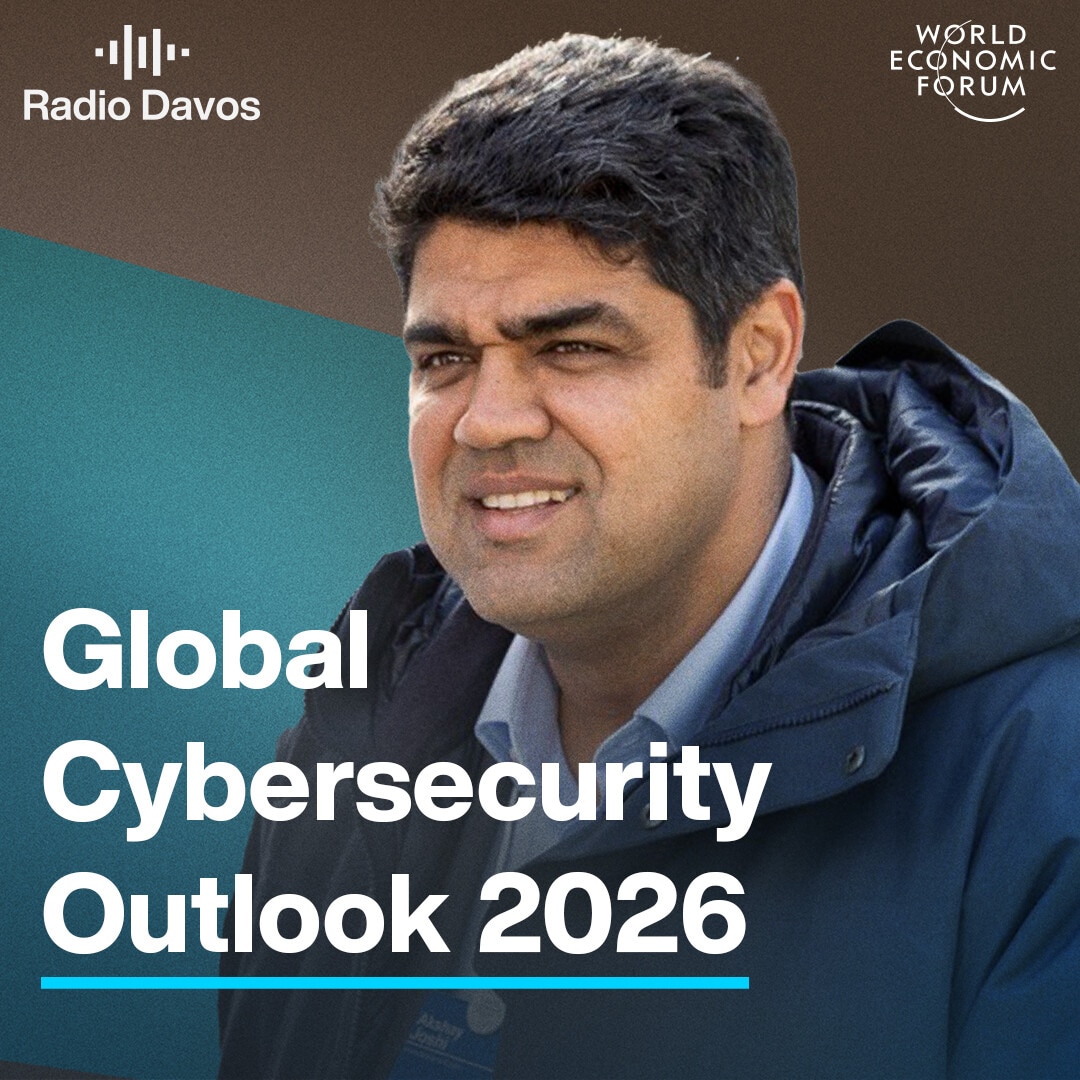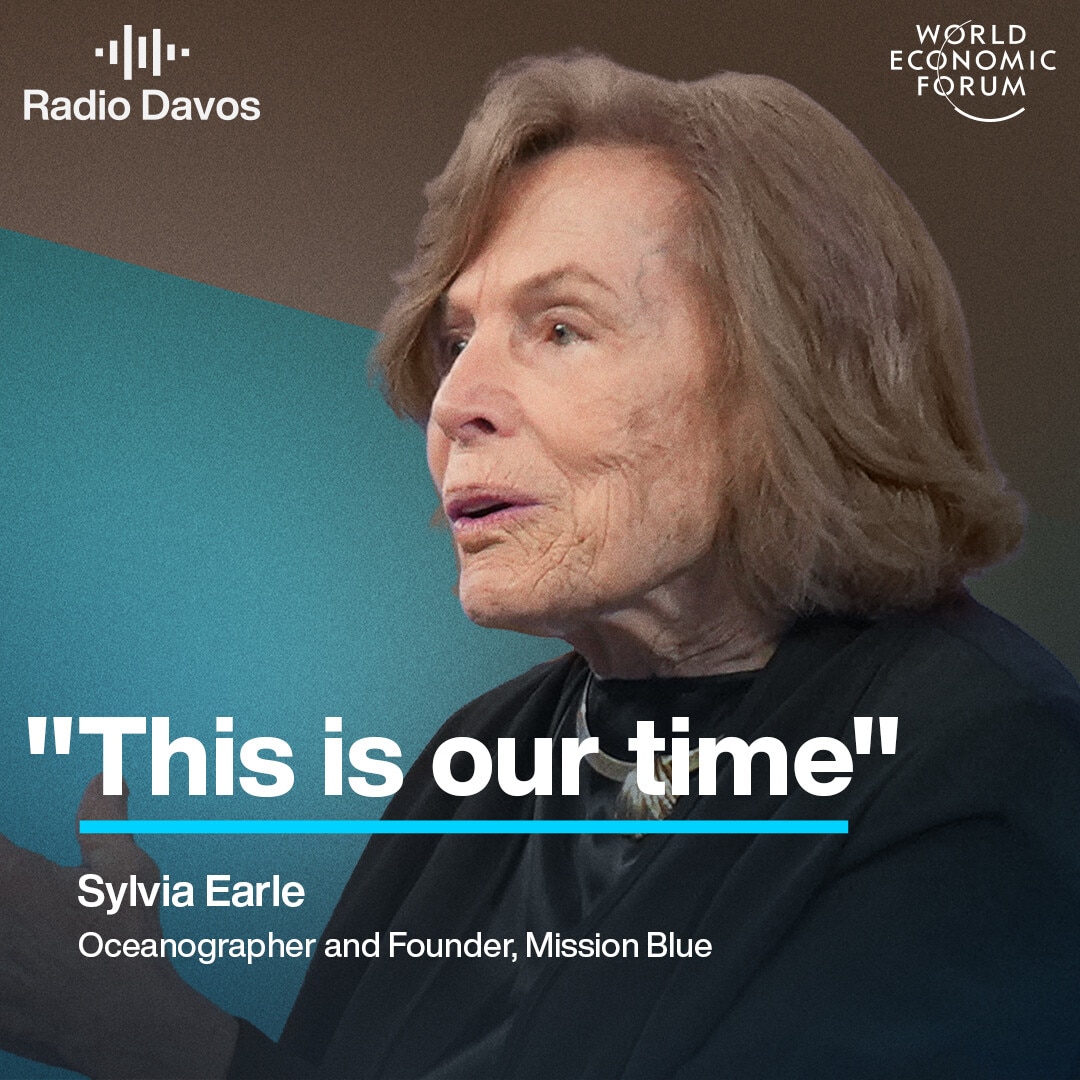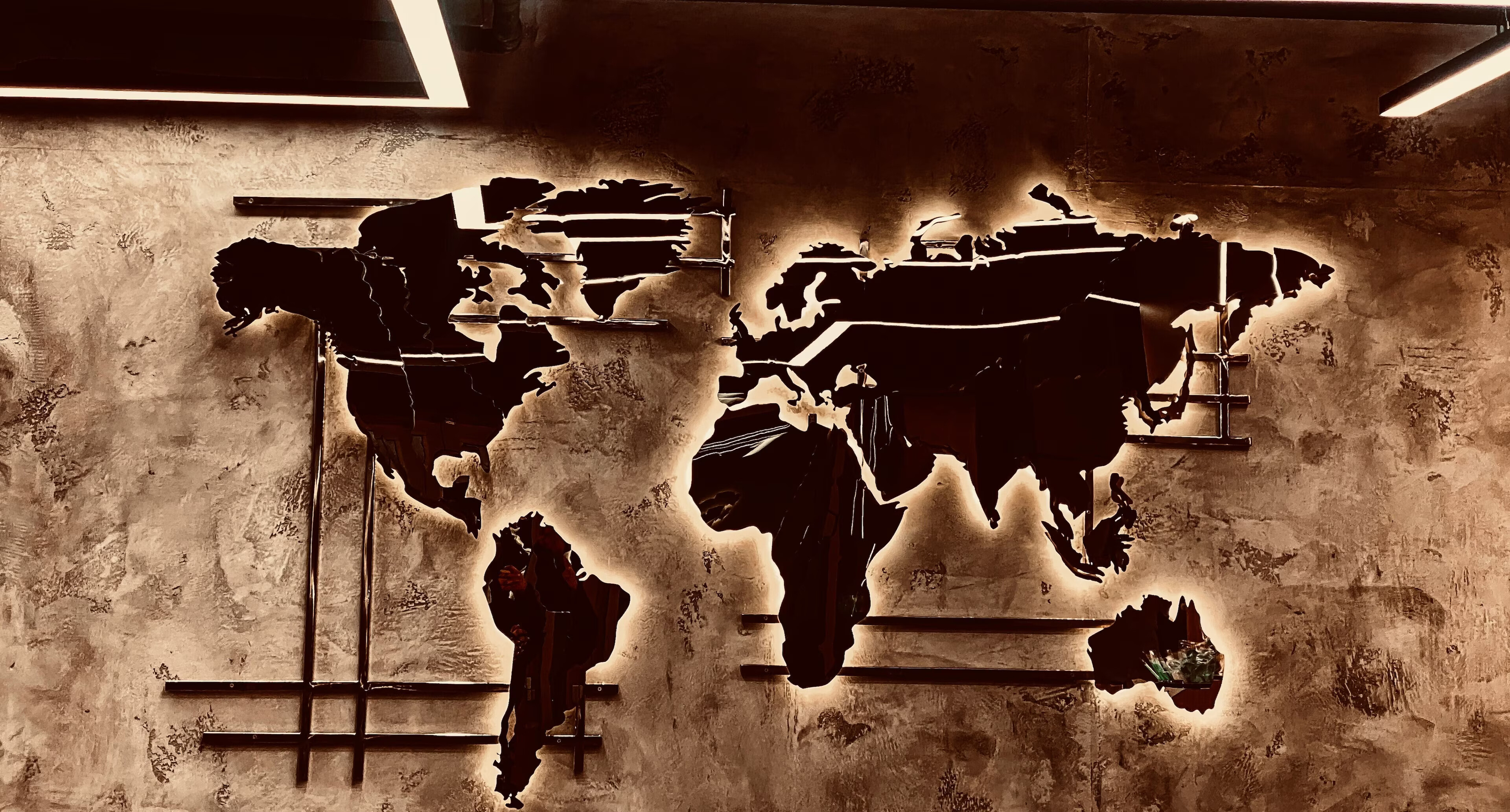Tariffs, globalization, and democracy, with Harvard economist Dani Rodrik
ポッドキャスト・トランスクリプト
Dani Rodrik, Ford Foundation Professor of International Political Economy, Harvard's John F. Kennedy School of Government: Tariffs have their uses. Tariffs can be a shield. So occasionally you may use it in order to protect what you're doing domestically. But it's not a Swiss Army knife in the sense that on its own it's going to fix a lot of problems.
Robin Pomeroy, host, Radio Davos: Welcome to Radio Davos, the podcast from the World Economic Forum that looks at the biggest challenges and how we might solve them. This week an economist who has long spoken out against unfettered globalisation.
Dani Rodrik: As economies became more integrated with each other, they became more disintegrated within themselves, in a sense of disconnect between the ordinary people and the political elites. All these tensions, inherent contradictions, ultimately made the system unsustainable.
Robin Pomeroy: As 2025 starts amid fears of a global trade war, Harvard Professor Dani Rodrik talks tariffs, economic nationalism and the impact of the wrong sort of globalisation.
The erosion and increasing economic insecurity of the middle class is a significant underpinning of what is happening to our democracies.
Robin Pomeroy: Globalisation needs a rethink.
Dani Rodrik: I don't think we should debate the question of whether we want globalisation or not. I don't think that's the real issue. The question is how should we manage it?
Robin Pomeroy: Follow Radio Davos wherever you get your podcasts, or visit wef.ch/podcasts where you will also find our sister programmes, Meet the Leader and Agenda Dialogues.
I’m Robin Pomeroy at the World Economic Forum, and with this look at how we might make globalisation a fairer force for all…
Dani Rodrik: Fighting geopolitical wars with China isn't going to do it.
Robin Pomeroy: This is Radio Davos
Welcome back to Radio Davos - the Annual Meeting is behind us - please do listen to our last episode ‘What just happened in Davos’ for a roundup of what went on there.
While it was all going on, I spent most of the week in our podcast recording booth doing interviews that we will be bringing you in the coming weeks here on Radio Davos.
This first one, was actually the first one I did - and it’s perfect timing to discuss the world as it is right now - with all the uncertainty about rising geopolitical and trade tensions.
Dani Rodrik is a professor of international political economy at Harvard University and he is known as a critic of unfettered globalisation and a supporter of so-called ‘industrial policy’. He explains what those terms mean, and gives his own views on what politicians should do to make the global economy work for people, and not the other way round.
Robin Pomeroy: Welcome to Radio Davos Davos. With me here in Davos is Dani Rodrik. Hi, Dani. How are you?
Dani Rodrik: Good, thank you. How are you?
Robin Pomeroy: I'm very well, thank you. So we're just at the start of the Davos week now as we record this. And it's really interesting to have someone like you here with us, a Harvard economist who's going to explain everything about the economy to us. How does that sound?
Dani Rodrik: I think I'm I'm just about to leave this podcast right now!
Robin Pomeroy: You're well known for your criticism of unfettered globalisation. Can you just give us, to anyone who's not read your work or seen you speak, your main stance on globalisation.
Dani Rodrik: When I was last in Davos, it's been quite a few years. It was in 2014, so it's quite a while ago. I think even then it was quite clear that there were tensions in what I've called hyper globalisation, which is a kind of, you know, supercharged globalisation.
And of course the big transition came a couple of years later in 2016 with Trump's first term election and then Brexit in Britain.
But I think what was already clear by then was that hyper globalisation had created a lot of fissures, divisions within society. So as economies became more integrated with each other, they became more disintegrated within themselves with, you know, inequalities in income, in social and cultural perceptions, in a sense of disconnect between the ordinary people and the political elites. Those fissures and divisions widening within societies.
And also there were a number of blind spots, with the climate transition being the most important.
And meanwhile, the major beneficiary of the system was in some ways a country that wasn't playing by the same rules. It was China, which succeeded extraordinarily during this period, but of course was playing the globalisation game not by the hyper globalisation rules where you're supposed to simply open up yourself to the world economy and let the chips fall wherever they may. But they had actually a very controlled approach.
So all these tensions, inherent contradictions, I think has ultimately made the system unsustainable.
Robin Pomeroy: What is it then about globalisation that leads to those internal fractures within countries?
Dani Rodrik: I think it's not globalisation per se, but I think it's the manner in which we went about it.
So you can look at the decades before the 1990s, which if you think is an earlier model of globalisation, the Bretton Woods model, where I think there was a healthier balance between countries looking after their own social problems, countries looking after the middle class, taking care of equity issues.
And then I think what happened after 1990 was a fundamental transformation in the frame of mind of the policy elites and the centrist political forces, where instead of saying, how can the world economy help us achieve our own social economic goals, it became what do we have to do to integrate into the world economy? And I think in that sort of transition to that what's called mindless prioritisation of globalisation, I think a lot of domestic, economic, social and ultimately environmental objectives went by the wayside.
So I don't think, you know, we should debate the question of whether we want globalisation or not. I don't think that's the real issue. The question is how should we manage it?
And I think hyper globalisation was very much a return to the spirit of, if you will, the gold standard, the late 19th century model, where countries simply left their economy on an automatic pilot run by the demands of international capital and the price of gold. And that didn't end very well either.
Robin Pomeroy: You were a proponent of what perhaps in previous years was an unfashionable notion, of industrial policy, which is a phrase people of a certain generation wouldn't even have heard of before it suddenly came back into vogue. Could you tell us what industrial policy is and why it's suddenly, maybe not so suddenly, come back in?
Dani Rodrik: So industrial policy was one of these levers of government policy, which I think has traditionally been important for governments to structure and diversify their economies, to become more productive, to lay the stage for future economic growth and creating economic opportunity.
So industrial policies have always been with us going back to the United States in the late 19th century with its own developmental policies of fostering their own industries. And of course, you know, the East Asian growth miracles and then the Chinese growth process.
And even in the United States, while industrial policy had become intellectually unfashionable, there was a tremendous amount of industrial policy taking place beneath the radar, if you will, of the policies of the Defence Department, various policies of support for small businesses, research, support for innovation and so forth.
So I think what happened was that these objectives became much more important once one realised that rebuilding the middle class was important, that in order to compete with China you had to ensure that you had resilience of supply chains and that you were producing the semiconductors that you need.
And perhaps most importantly, the understanding that to embark on the green transition in a serious way, you needed to promote innovation in renewables and electric vehicles and batteries. And that needed active industrial policy, support of these new industries so that you could push firms down their cost curves that, you know, it wouldn't work simply through pricing carbon appropriately, you needed a much more active hand of the government.
Robin Pomeroy: So industrial policy is an intervention by a government to achieve certain goals within an economy. So it's not unfettered capitalism - let the chips fall where they land, to use the expression you just used. And you're saying that never really existed, even in the United States because the government had these military policies and lots of other policies as well. But then I suppose recently, in the last, in the Joe Biden administration, you've had, particularly the one that comes to my mind is the IRA - what does that stand for, remind me?
Dani Rodrik: Inflation Reduction Act. The very inappropriately named Inflation Reduction.
Robin Pomeroy: What do you think of that? Because, you know, those of us who haven't been paying that much attention to it from the outside, it seems to be it's not so much about inflation, but more about job creation and also that green transition that you mentioned.
Dani Rodrik: I'm a big fan of the IRA, but I think to appreciate the role of IRA, we have to step back and consider a couple of things.
One is that, probably the most significant advance we have registered in the fight against climate change is the significant reduction in the cost of renewable energy in the last ten, 15 years. And that was pretty much the result of industrial policy carried out by China. China went in a big way to subsidise solar, wind, electric vehicles, batteries, and the price of these green products and renewable energy has collapsed in ways that one would not have really thought imaginable 15 years ago.
So that is a huge benefit that industrial policy has produced not just for China, for the world as a whole, because climate change.
So that's one important background against US emulation of these policies.
The other important background is that much of the technocratic elite and economists and many policymakers put a lot of emphasis on carbon pricing as a way of getting on the green transition. And we've seen that carbon pricing is politically very difficult because it raises the price of energy. It's a kind of a tax. Nobody likes a tax and the United States has been completely unable to engineer carbon pricing or raising the price of carbon for so many decades.
Now green industrial policies, on the other hand, which is to actually crowd in investments and crowd in innovation, is very different because, rather than basically telling people we're going to tax you, it's telling people we're going to subsidise you. So it's the carrot rather than the stick. So it's turned out that from a political perspective, it's been much easier to actually embark on the green transition through industrial policies rather than through carbon pricing.
So you put those two elements together and I think the IRA, I think is probably sort of the next level of this, which is trying to emulate the Chinese industrial policies to achieve technological progress and travelling down the learning curves in these new renewable and green industries and doing so in a way that actually generates political support along the way.
Because the further you go down this path, the more you strengthen green industries or renewable energy and the regions in the country that benefit from that, that creates a kind of a political momentum that enables you to embark on the decarbonisation path through the carrots rather than the sticks.
So for that reason, I think the IRA has been very important. And even though incoming President Donald Trump has talked about sort of, you know, you know, basically going back on all of these things, I think for political reasons, many of these policies will remain in place because there are a lot of companies, a lot of sectors, a lot of regions that are benefiting from these incentives. So they will not want these incentives to be curtailed.
Robin Pomeroy: So industrial policy is a phrase that has returned into vogue. But another phrase that we hear a lot is economic nationalism. Could you tell us what you understand by that phrase, and what's the difference between industrial policy and economic nationalism?
Dani Rodrik: Economic nationalism is one of these scare words, right? But there are different varieties of economic nationalism. One variety actually is can be quite helpful, not just to an economy, but also to the world at large. So I call that variety, for lack of a better word, developmentalism, which is countries trying to pursue their own developmental agenda.
That means embarking on these kinds of industrial policies, helping new sectors, managing your economy well and leveraging the world economy so that you can access capital, you can access technology, you have access to international markets and so forth.
So developmentalism is a kind of economic nationalism because you're putting your own economic national interests first and foremost. But to the extent that you're successful, you're helping not just yourselves because you're helping the rest of the world too.
Now, in that way. I think developmentalism has been a feature of U.S. economic history. It's been a feature of Western Europe and of course it's been a feature of China. But, you know, China's developmentalism has been hugely beneficial, not in terms of its own economic growth and poverty reduction record, but also by creating this huge market for the world's firms and and exporters has been on the whole, despite all the tensions, of course, that we see today, has been hugely beneficial.
There are other varieties of economic nationalism which, you know, it teeters into mercantilism where you're trying to maintain trade surpluses, export a lot more than you're importing, or it can, of course, in the extreme form, you know, merge into kind of economic imperialism or expansionism of the type that we saw in the interwar period with Hitler's Germany. And of course, those are tremendously damaging because they view the world from a zero sum standpoint, which is that to say that, I only gain to the extent that you lose and that of course, is is very harmful for the rest of the world.
So I'm very much in favour of a kind of economic nationalism that takes a developmentalmentalist form. But I think we should be very wary of its zero sum version.
Robin Pomeroy: So you'd have no truck with someone being isolationist. We're a huge country, whichever country you're talking about, we can produce and consume basically within our borders. We have energy, resources, etc. We can avoid all the problems of globalisation if we pretty much stick to ourselves.
Dani Rodrik: Well, I think, you know, self-sufficiency is a path to economic decline. You know, no country, even if you're the United States or China, can prosper without the world markets you know, getting inputs from the rest of the world, getting technology where you're not at the forefront, accessing markets for your exports and so forth.
To the extent that economic nationalism is, you know, putting your own national economic interests first, there's no way you can do that without, you know, using world markets.
So I don't think isolationism is what smart economic nationalists would choose to do.
Robin Pomeroy: How do you see the potential of big tariffs coming in, some kind of trade war, if we want to use that phrase, or heightened trade tensions? Donald Trump, as we speak, he's being sworn in. He's promised to do that for various reasons. Is that a good policy? Where do you think it might lead?
Dani Rodrik: I think tariffs have their uses. So I use the analogy that, you know, tariffs can be a shield to protect your domestic economic policies or your economic social arrangements. So occasionally you may use it in order to protect what you're doing domestically. But it's not a Swiss Army knife in the sense that on its own it's going to fix a lot of problems.
And I think the problem with Trump's approach to tariffs is that he's basically viewing tariffs as a kind of, you know, all purpose policy that's going to fix America's competitiveness problems, is going to, you know, restore the middle class, is going to create lots of jobs. It's going to fix the trade balance. It's going to reassert the US dollar as a kind of a reserve currency.
Tariffs on their own cannot do that. Tariffs can be at best, a complement, you know, can play a supportive role for a domestic economic strategy.
So I think the use of tariffs or trade policy in the Biden administration was much more in line with what I'm suggesting as this kind of a shield role, because they were mostly, for example, there were some, not tariffs, but discriminatory trade arrangements under the IRA where, you know, the Biden administration gave certain preferences for use of local content as opposed to imported inputs. But it was really to sort of make the IRA economically and politically viable domestically. So it wasn't, you know, creating the green transition through local preferences, but it was more using local province as a way to buttress a broader approach to climate change.
So I think I worry about Trump's approach mainly because I think he has a view of tariffs that is completely unrealistic. I think the best that we can hope is that he's going to use tariffs mainly as a kind of a way to extract concessions from individual trade partners. What I do hope is that other countries will stay calm and will not retaliate, because I think ultimately the costs of tariffs are born mostly at home. And it would be the very silly for other countries to add insult to injury by actually raising their own tariffs and retaliating, although politically, presumably they have to do something. But my main advice to other countries would be to stay calm and not to overdo.
Robin Pomeroy: You mentioned a couple of policy aims. One being the green transition or climate change. Maybe we can come back to that, but also building back up the middle class. Could you tell us what's happened to the middle class and what are the policies that might work to reverse what has happened?
Dani Rodrik: It wasn't, of course, just hyper globalisation that led to the erosion of the middle class. It was also technological changes, automation, a process of deindustrialisation in the advanced countries that would have happened regardless, and a certain amount of de-institutionalization of labour markets with the decline of labour unions and the decline of voice on the part of labour and bargaining power of labour and so forth.
I think this probably went furthest in the United States, where the erosion of the middle class is quite significant and measurably so. But even in countries and some European countries, for example, where there has not been an quantifiably measurable erosion of the middle class, there is a general sense that people in the middle classes feel much greater sense of economic precarity, that they feel that their living standards are much more under threat.
And I think that's important because the erosion and increasing economic insecurity of the middle class is a significant underpinning of what is happening to our democracies.
And I think the significant gains that the authoritarian forces and the far right and right wing populism have been able to register are actually rooted to a significant extent in the erosion of social cohesion in the advanced countries.
I think it's well known, going all the way back to Aristotle, that you cannot maintain democracy in a country where there are huge chasms, huge divisions, huge inequalities in income.
So I think the most important thing we can do is focus on creating good jobs. And I think what has happened is that good jobs have become scarce as a consequence of deindustrialisation, I think globalisation, technological change.
And good jobs means not simply increasing the voice of labour because I don't think we're going to go back to the 1960s and 70s where we had a very large manufacturing or industrial labour force with trade unions and so forth. We're moving to a world where the majority, the bulk of of jobs being created are in services.
And many of these services are not well-paid, they're not very skilled, they're not very good jobs. In the United States, for example, the long term care sector is by far the most rapidly expanding sector in terms of employment. Yet it is it's a source of very bad jobs.
So I think the way to restore the middle class is through an explicit good jobs strategy that's going to combine giving labour in these new sectors a voice, whether through labour unions or other form of voice, so that they can look out for their interests, but also using new technologies, digital and real technologies to enhance the productivity of what have been traditionally very low productivity jobs so that give workers in the care sector or workers in social and personal service, in retail, in warehouses, much greater autonomy to make decisions, to become more productive, to be able to provide much more customised services.
We can use technology and AI for these purposes, but that's going to take an explicit attempt to direct new technology in this direction. That if we simply leave the direction of technological change in the hands of big tech, we're as likely to get, as I think we're getting, sort of a new forms of technology that far from empowering workers without university or professional educations, in fact, are much more designed to control them, to reduce their autonomy, to expropriate much more of the productivity gains of firms and employers, rather than leaving that to workers' hands.
So I think it's a kind of very different set of policies than what was required in the 60s and 70s when we had a kind of Keynesian social democratic approach where if we create full employment and we have, you know, unionised industrial labour force that is the foundation of a middle class society. We will need different tools going forward that's much more focused on services and using technology and the provision of public inputs to increase productivity in these traditionally low wage services.
Robin Pomeroy: AI is an expensive technology. Companies are using it, deploying it to produce things in a different way, to produce new things. You're saying that the riches resulting from that, if we're not careful, I guess is going to result in ending up with the richest people? And I'm thinking of the care economy, as you said. I'm not quite sure I see where AI can help there, because if you can pay someone minimum wage or less to do care work, you're not going to invest in AI to help them become more productive, because I can actually imagine ways where I could help people in those jobs, allowing them more time with the people they're looking after, taking care of all the administration and logistics and that kind of thing. But is anyone actually going to invest in that? Because the return from that is maybe not going to be so huge?
Dani Rodrik: Well, the return can be very large. For example, if you make care workers that are providing, for example, assistance to older people who are, let's say, homebound, if you allow them to provide much more customised assistance to older people through digital tools that will enable them, for example, to to check on the status of these people to adjust, let's say their feeding schedule, their medication schedule, address small needs, the payoffs show up somewhere in the system in the form of, for example, much reduced hospitalisation rates or, you know, longer lifespans or much greater satisfaction on the part of the older people are being taken care of, that could be much better.
So there are both income and other gains that are generated somewhere in the system. But the organisational form in which care is provided often doesn't allow for these gains to go back and to incentivise that provision. So I think we need therefore both the investment in the right technologies, but also the organisational changes that are required to ensure that those who have the capacity to invest in these technologies also have the incentive to do so.
Robin Pomeroy: If that's the case, and you are more proponent of unfettered capitalism, you say there are gains to be had, this will happen just as water flows downhill. You seem to be saying that probably won't happen without a nudge from policy, at least a nudge, maybe something much bigger, for policy makers to create or enhance these jobs that the middle classes maybe should be doing.
Dani Rodrik: No, I think they won't happen on their own, partly because it is organisational. When we look at the history of, for example, how technological innovations have filtered down to aid to the less skilled, often you have pre-existing organisations, for example, physicians are very well-organised and they're very unlikely to give up some of their responsibilities. So they have a direct stake at preventing, for example, less credentialed health aid workers to perform some of the tasks that physicians do. And historically, they've basically acted as a very strong lobby to prevent nurses to engage, to undertake tasks that they could have done, even like taking blood pressure.
But with new tools, you know that nurses or nurses' aides could do that, and tasks that were primarily undertaken by physicians were passed on. But you look at the history, it was always resisted by. So you need other agencies like governments to countervail against those pre-existing organisations.
You also need somebody to speak up for the workers, right? Because you know, it's not like the corporations and platform companies, might often have very short term views about what's profitable, so they might significantly underestimate the gains that they get from providing greater autonomy and agency to individual workers. They might simply say, we're actually going to go the other way, which is we're simply going to monitor everything they're doing. That's what the technology we want to invest in.
But it could well be that because these, let's say, frontline workers are much closer to the customers, they often have good ideas about how to change their practices. But often corporations will not be open to their own internal dynamics to these innovations. And therefore, again, the government might have a significant role to play to open up those paths.
Robin Pomeroy: What should leaders prioritise in 2025?
Dani Rodrik: I would say, going back to what we were discussing before, the health of the middle class.
A sustainable, healthy democracy relies on a broad middle class. And I think we need a very serious rethink of how we do that.
You know, trying to bring manufacturing back is not going to do it. Fighting geopolitical wars with China isn't going to do it. Even the green transition, as important as it is, as it is an independent objective, it's not going to do it. So we need an entirely new strategy that's based on the creation of good jobs in services in order to rebuild a middle class. And I think that's where I would put my emphasis.
Robin Pomeroy: And the last one. We're looking for book recommendations. Is there a book we should all be reading in 2025?
Dani Rodrik: I would recommend the book that is The History of Globalisation and Global Capitalism by Jeff Frieden, who was long time my colleague at Harvard but now has moved to Columbia University. It's not a very new book, but I think it's a very useful source of reflection of, you know, what we're going through here in the global economy and the various ups and downs of globalisation. It's nothing that's very new and that we've experienced that before and how both the right wing backlash and the left wing backlash to globalisation is a recurring historical feature. So maybe that would be one book to have a historical perspective on our current day that I would recommend.
Robin Pomeroy: Dani Rodrik is Ford Foundation Professor of International Political Economy at Harvard's John F. Kennedy School of Government.
For more on global trade, check out my interview with the chief economist of the World Trade Organization, Ralph Ossa published in January.
And be sure to follow Radio Davos, and our sister podcasts Meet the Leader and Agenda Dialogues to get more from the Annual Meeting over the coming weeks.
If you have a moment, please give us a rating or review on your podcast app.
This episode of Radio Davos was presented by me, Robin Pomeroy. Studio engineering in Davos was by Juan Toran. Editing by Jere Johansson. Studio production was by Taz Kelleher.
We will be back next week, but for now thanks to you for listening and goodbye.
Scroll down for full podcast transcript - click the ‘Show more’ arrow
Dani Rodrik has long argued against unfettered globalization and supports countries' use of industrial policy to pursue economic development.
The Harvard economist joins us to talk about the usefulness and limitations of trade tariffs, economic nationalism, and the impact of global economics on democracy.
その他のエピソード:
「フォーラム・ストーリー」ニュースレター ウィークリー
世界の課題を読み解くインサイトと分析を、毎週配信。












